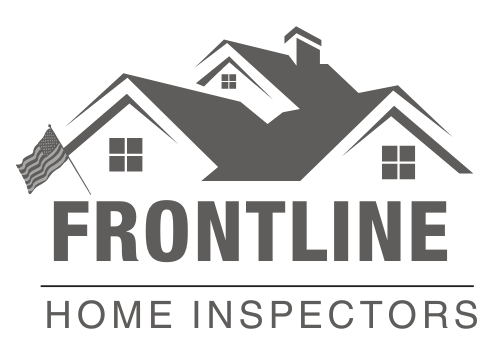House fires are devastating, but fortunately, many of the common causes are preventable. Knowing the risks and taking proactive steps will protect your home and loved ones. No matter the cause, you’ll dramatically reduce the likelihood of a fire by following some straightforward precautions. In this blog post, we’ll dive into the key ways to prevent a house fire and keep your home safe.
Inspect and Maintain Your Electrical System
Electrical problems are one of the most frequent causes of house fires, especially in older homes where the wiring may be outdated. Homes that are over two decades old are at a higher risk, but even newer homes aren’t immune from electrical fires. To mitigate this risk, it’s crucial to have your home’s electrical system inspected regularly by a licensed electrician. Make sure the electrical panel isn’t overloaded, and never use extension cords as permanent solutions for plugging in multiple devices. If you notice issues like flickering lights or frequent tripped breakers, have them addressed immediately by a professional. Always replace frayed cords, and only use appliances in the manner the manufacturer intended. Faulty wiring or overloaded circuits are warning signs you shouldn’t ignore.
Keep Smoke Alarms in Working Order to Prevent a House Fire
One of the simplest and most effective ways to prevent a house fire from spreading is by having fully functioning smoke alarms throughout your home. Install smoke alarms on every level, especially near bedrooms. It’s important to test them monthly to confirm that they’re operational. If you hear a chirping sound, it’s time to replace the battery. Smoke alarms have a lifespan of about ten years, so replace the entire unit when the time comes. An even better option is to install interconnected smoke alarms, so when one alarm sounds, they all go off, giving you and your family ample warning in case of a fire.
Prevent Dryer Fires
Clothes dryers are another unexpected fire hazard, mainly due to lint buildup in the filter or vent. To avoid this, clean the lint trap every time you dry a load of laundry. Periodically inspect the dryer vent and duct for lint accumulation and clean it out to allow air to flow freely. Make sure your dryer is properly vented to the outside and not into the attic or crawl space, as this could create a fire risk.
Equip Your Home with Fire Extinguishers
Every home should be equipped with at least one fire extinguisher, preferably located in areas where fires are more likely to occur, such as the kitchen, laundry room, and garage. Make sure every member of your household knows where the fire extinguishers are stored and how to use them. A fire extinguisher is a critical tool in stopping a small fire from becoming a catastrophic blaze. Regularly check the fire extinguisher to verify it’s ready for use in an emergency.
Have a Fire Escape Plan
Even with the best prevention methods in place, it’s essential to prepare for the possibility of a fire. Create a fire escape plan for your household and practice it at least twice a year. Make sure every family member knows the two quickest ways out of each room and designate a meeting place outside the home where everyone can gather in the event of a fire. Regularly practicing fire drills will help everyone know what to do and how to exit the home safely and efficiently in a real emergency.
Preventing a house fire requires constant vigilance and a commitment to safe habits. From keeping electrical systems in check to verifying smoke alarms are functional, every step you take makes a difference in protecting your home. By making fire safety a priority, you will minimize the risk of a fire occurring and keep your family safe. Stay proactive, maintain your home’s systems, and always be prepared for the unexpected.
FAQs on How to Prevent a House Fire
What’s the best way to dispose of fireplace ashes safely?
After using a fireplace, it’s important to handle the ashes with care. Always wait at least 24 to 48 hours after your last fire before attempting to remove ashes. Use a metal container with a tight-fitting lid to store the ashes, and place it outside, far away from your home or flammable materials. Never dispose of ashes in a plastic bag or cardboard box, as they can remain hot enough to ignite for days.
What kind of fire extinguisher should I have in my home?
There are several classes of fire extinguishers, but the most versatile option for homes is an ABC fire extinguisher. This type is suitable for three types of fires: Class A (ordinary combustibles like wood and paper), Class B (flammable liquids like gasoline or grease), and Class C (electrical fires). Make sure to store them in easily accessible locations, such as the kitchen and garage.
How often should I clean my dryer vent?
Cleaning the lint trap after every load of laundry is a must, but you should also clean your dryer vent annually to prevent lint buildup, which can become a fire hazard. Homes that use their dryer frequently or have longer venting systems may need more frequent cleanings, possibly every six months. You can either hire a professional or use a vent cleaning kit to maintain your dryer vent.
Is it safe to leave space heaters on overnight?
It is not safe to leave space heaters running unattended or overnight while you sleep. Space heaters are a common cause of house fires, especially when left on for long periods or placed near flammable materials like curtains, furniture, or bedding. Always turn off space heaters when leaving the room or going to bed, and keep them at least three feet away from anything that could catch fire.
Frontline Home Inspectors provides professional inspection services, including pre-listing inspections, to Ogden, Utah, and neighboring communities. Contact us to schedule our services today.

